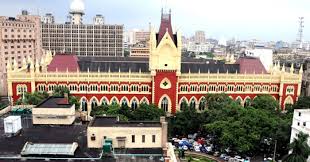
Demonstration Allowed Until December 31 at Dorina Crossing
Kolkata: The Calcutta High Court has extended permission for senior doctors protesting at Dorina Crossing to continue their sit-in demonstration until December 31. The protest, organized by the West Bengal Joint Platform of Doctors (WBJPD), began on December 19 following prior approval from the court.
The extension, granted by Justice Prasenjit Biswas, comes with strict conditions:
- The protest gathering must not exceed 100 participants.
- Provocative speeches that could disturb law and order are prohibited.
- The demonstration is restricted to the hours of 10:00 AM to 9:00 PM.
Environmental and Security Measures
The court also instructed the WBJPD to clean the protest site as per the guidelines of the National Pollution Control Board and the National Green Tribunal after the dharna ends. Additionally, the administration has been directed to:
- Deploy sufficient security personnel to maintain peace.
- Take necessary measures to prevent any untoward incidents.
Context of the Protest
The sit-in protest is aimed at demanding accountability from the Central Bureau of Investigation (CBI) for its failure to file a supplementary charge sheet in the rape and murder case of a trainee doctor from RG Kar Medical College and Hospital. Protesters are also urging the West Bengal government to approve the prosecution of implicated state officials.
Legal and Administrative Challenges
Initially, the Kolkata police declined the WBJPD’s request to extend the protest, citing the court’s earlier directive. The protest organizers approached the High Court, which granted a five-day extension. The ruling came as a relief to the doctors, who had faced previous hurdles, including police opposition to their initial protest plans.
Concerns over traffic congestion led the police to challenge the protest’s legality at a division bench, which upheld the single bench’s decision while imposing stricter participant limits.
The High Court’s ruling balances the doctors’ right to protest with public order and environmental concerns, allowing the sit-in to continue under monitored conditions.


